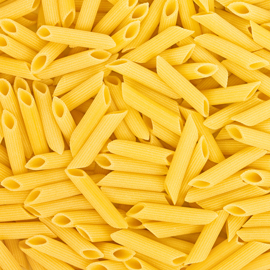
Though carbohydrates have an essential role in our bodies, you must be careful of the number and types of carbs you eat before and after bariatric surgery. In this section of our Bariatric Surgery guide, we will investigate carbohydrates after bariatric surgery and go over the function of carbohydrates in the body and the carbohydrate guidelines you will follow before and after surgery.
What are Carbohydrates?
Carbohydrates are one of our primary energy sources. When we eat carbohydrates, our bodies convert them into glucose, a sugar that can then be converted into energy for our cells.
Examples of carbohydrate foods include:
- Breads and cereals
- Pasta
- Rice
- Fruits and starchy vegetables
- Dairy products
- Sweets like candy, cookies and cakes
Carbohydrates After Bariatric Surgery: Sugar Busters!
Two weeks before sleeve gastrectomy surgery, you will start the Sugar Busters diet, which will make surgery easier for Dr. Bagnato and improve the safety of your operation.
On the Sugar Busters diet, you will need to avoid foods like:
- Baked beans
- Carrots
- Corn
- Ripe bananas
- Raisins
- White bread, pasta and rice
- Potatoes
- Beets
- Turnips
- Parsnips
- Rutabagas
- Beer
- Bacon, fried chicken and most cold cuts
You should also avoid the following ingredients whenever possible:
- Honey
- Molasses
- Corn syrup
- Cornstarch
- Modified food starch
- Dextrose
- Polydextrose
- Maltodextrin
While you’re on the Sugar Busters diet, you will need to:
- Choose foods that have 3 grams of sugar or less per serving. Dairy and fruit products (including tomatoes) can be exceptions to this rule, but only if they contain no added sugars and all their sugar comes from lactose (dairy) or fructose (fruit).
- Eat only 100 percent whole grain or whole wheat flours. White flours, enriched flours, refined flours, bleached flours, corn flours and corn meals will need to be avoided.
- Eat two to three servings of starchy carbs per day. Starchy carbohydrates include breads, crackers, grains, cereals, sweet potatoes, yams and pasta. Examples of one serving include 1 slice of bread, ½ cup of oatmeal, cereal, rice or pasta or ½ of a small sweet potato. For these foods, follow the rules on flour and sugar listed above.
Some people choose to continue the Sugar Busters diet indefinitely after sleeve gastrectomy surgery. You can discuss this decision with your nutritionist.
Carbohydrates After Bariatric Surgery: Guidelines
Regardless of whether or not you continue following Sugar Busters, you will need to set strict limits on high-carb foods, refined carbohydrates and sugars after bariatric surgery. This is because:
- Carbohydrate foods take up room needed for protein. Carbohydrates will have the lowest priority for your limited stomach space after surgery. Because it will be essential to eat enough protein, you should eat protein first, followed by nutritious, non-starchy vegetables and, if you have room, starchy vegetables and flour-based starch foods.
- High intake of sugars and refined carbohydrates can cause hunger. Eating refined carbohydrates and sugars can increase hunger and slow down your progress.
After Sleeve surgery, you will receive specific instructions on which carbohydrates to eat and which to avoid in each stage of your diet. If you have any questions about the amount and types of carbs you should be eating, please contact us.


